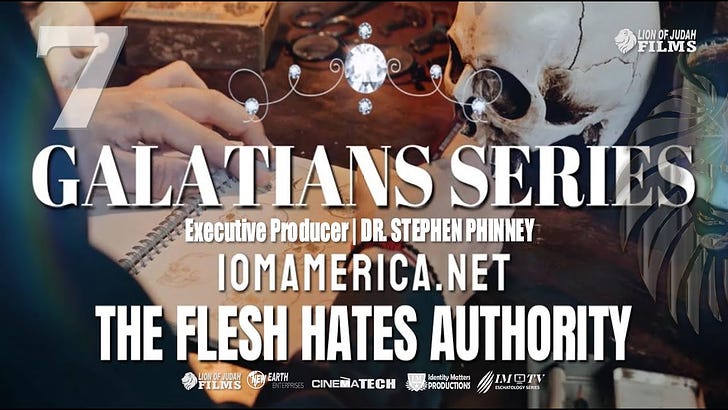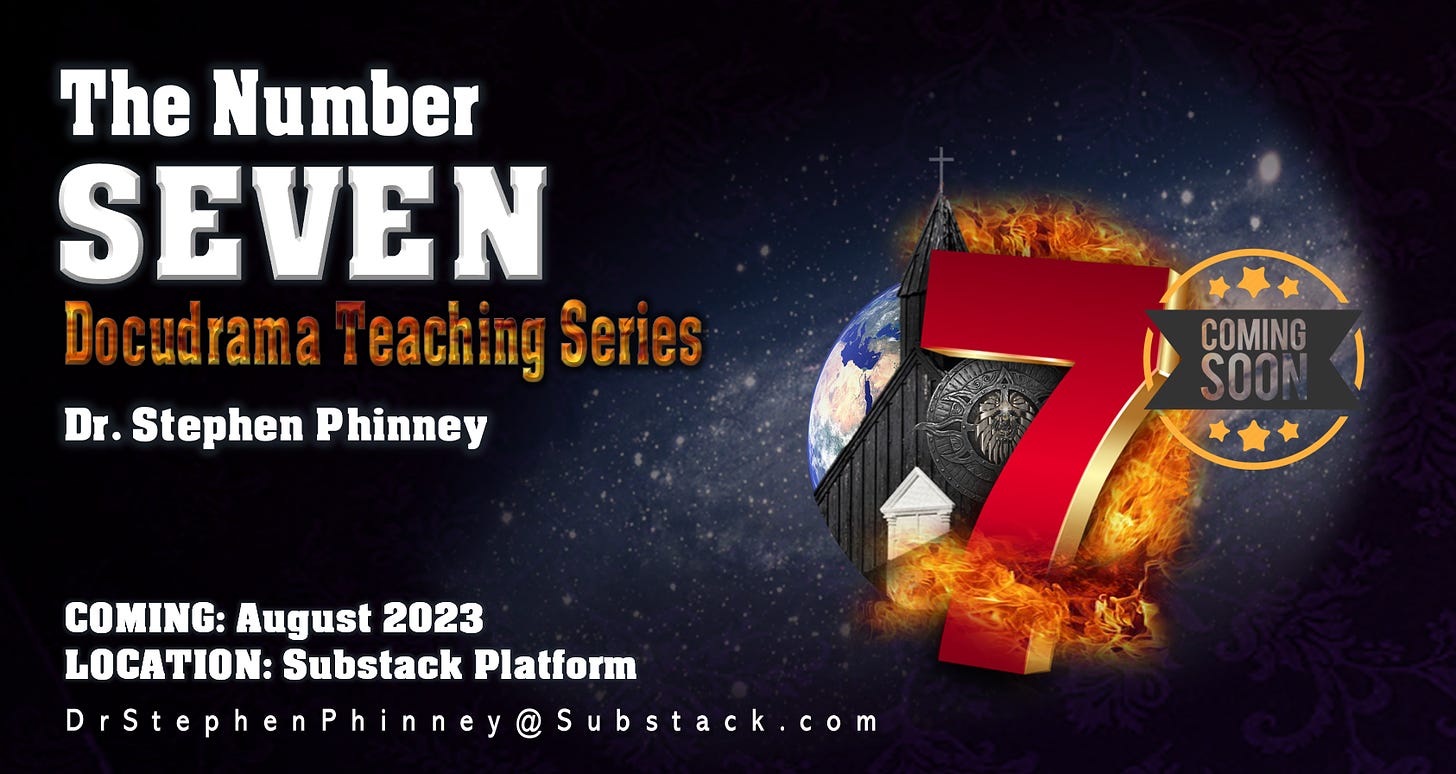#Culture. Flesh Hates Authority
The flesh of humanity hates submitting to authority. No question that we live in a culture of permissive rebellion against authority. It explains the reason the flesh of humanity is out of control.
Everywhere you look, uprisings are dominating every nation and its people. The global masses are demonstrating “hate” to all who hint at telling them what to do. Yet, several countries are demonstrating blind obedience & loyalty to their commanding leaders, which Satan will use to propagate his method of governance - absolute authority!
THE FLESH HATES AUTHORITY
Authority is the power or right to give orders, make decisions, and enforce obedience when subordinates resist such requirements.
Imagine, for a moment, being on the battlefield. The commanding officer gives the order to advance the campaign, and one or more of the soldiers decide to resist such orders and do their “own thing.” The catastrophic results? Innocent soldiers die. The mission could go rogue, and the top commander is put in the position of terminating the soldiers who resist. Within the battlefields of sociology and political science, authority is the legitimate power of a person or group over the people. If such a society refutes such order, the masses will implode in and upon itself.
We live in such a degenerative society – locally and globally. The conclusion to such depraved ideologies is simple. God turns such soldiers of humanity, or the Cross, over to their flesh, which ultimately places them in harm’s way. In the end, it takes a preeminent power to threaten them with their lives, and even then, some resist by sacrificing their lives to remain rebellious.
God keeps things simple.
He mandates that all servants be submissive to their masters. 1 Peter 2:18 tells us, “Servants, be submissive to your masters with all respect, not only to those who are good and gentle, but also to those who are unreasonable” (NASB). The Greek word for servant used here (οἰκέται) properly means “domestics” - those under the authority of a domestic master or living in the same house (from οἶκος”). These people may have been slaves, wives, or children. This word applies whether these individuals were hired, owned as slaves, or were blood relatives. The only time God’s children are expected to resist such authority is if the leaders mandate them to break the Laws or doctrinal positions of the Holy Word of God.
The exhortation here was, and still is, strictly applicable to any person subservient as a domestic, even if voluntarily hiring oneself out as such. While remaining under a master’s authority, we would be wise (in Christian meekness) to perform our duties with faithfulness, loyalty, and reliability and endure all the wrongs we may suffer from those in authority. However, the deeds of the flesh hate this mandate.
Those who need to “go out to serve” for a living are not always free from being mistreated. There are trials within this condition of life that cannot always be avoided. In many cases, it may be preferable to accept the “master’s” conditions of service instead of attempting a change of situation, even though the servant would be entirely at liberty to do so. The dynamic can apply to marriages, employment, citizenship, military enrollment, and personal discipleship.
Strong Authorities
The Greek word here rendered “masters” (δεσπόταις) does not necessarily imply that those under them were slaves. This term applies to the head of a family, corporate function, church administration, military function, and individuals the authority figure serves. Note of interest: this word is frequently applied to a Christian’s relationship with God and Christ. Peter was addressing not only Christians but also people in general who were under authority. It is implied that they were pursuing a course that was inconsistent with real Godliness. In addition, these “heads of families” were disobedient to the Word (1 Peter 3:1). Peter was speaking directly to those under these “masters” who were suffering because of the grievous wrongs of their master’s grievous wrongs.
“Let as many bondservants as are under the yoke count their own masters worthy of all honor, so that the name of God and His doctrine may not be blasphemed” (1 Tim. 6:1, NKJV).
Count their own masters worthy of all honors – We are called by the Father to treat unreasonable authority figures with all proper respect and to manifest the right Spirit in serving them. Despite what our masters have done, we are not to do anything that would dishonor the representation as children of the Father. The injunction here would seem to have particular reference to those whose masters were not Christians. The meaning here is that the slave (us) should show the Christian Spirit toward our master so that our walk with Christ will not be dishonored. We ought not to give our masters occasion to say that the only effect of our Christian beliefs has been to make us restless, disappointed, dissatisfied, and disobedient. In a humble, trying situation and by being under the yoke of bondage, we ought to exhibit patience, kindness, and respect for our master. As long as the relationship continues, we must obey unless asked to violate the Word of God. This command, however, was by no means inconsistent with our desire for freedom and to secure it if the opportunity presented itself.
We need to make sure the name of God and his doctrine may not be blasphemed – the power behind this statement is almost overwhelming.
Our goal here should be that Christ is not dishonored or blamed, and there may be no occasion to say that Christianity tends to produce discontentment, leading to an uprising. Suppose the effect of Christianity had been to teach all servants that they should no longer obey their masters. In that case, they would resist them and assert their freedom by violence or resistance, or if their masters were to be treated with humiliation on account of their usurped rights over others, the effect would have been obvious – war. There would have been a loud and united outcry against the newfound “religion” (Christianity), which may not have made progress in the world.
The original family is not about to be broken up by an angel, Lucifer/Satan, who thinks he is a father. God’s role is not “up for grabs”. He will not offer His seat to anyone--angel or man. God, the Father, considers it a major violation for any being to attempt to be like Him or to take on the role of the Father. Preserving the original family is a top priority for God. His flawless model is a clear demonstration of perfection regarding spiritual, relational, and physical relationships. God is pleased to announce that His heaven is secure and free from all forms of rebellion.
It is unclear to us why God allows “self-will,” even in the heavens.
We can only assume that God created men and women with the same design of heaven. God created the angels with a will to choose whom they would serve. Satan (named Lucifer at the time) chose to be an adversary to the Father of Heaven and paid a stiff penalty because of this act of declaring, “I will make myself to be like the Most High” (Isaiah 14:14). No one is to take on the role of Father except the One who is the Father. Authority is the key to accomplishing significant work, good or bad. Satan knew that he could not accomplish his work unless he had God’s authority to do it.
God’s order of conducting business is the only way. Satan understands that God is the supreme Father and Christ is the Son. The Son only says and does what the Father tells Him (John 8:28). The Word of God is God, and Christ spoke only His Father’s Words. Even Christ did not speak on His own initiative but spoke as His Father taught Him. The Holy Spirit’s role was to bring the Words of Jesus to remembrance to the disciples/Christians (John 14:26). God designs angels to carry out the business that God, the Father, orders. Gabriel leads in delivering God’s messages, and Michael leads in spiritual warfare. Lucifer was in charge of the “harp” --worship (Isaiah 14:11).
Because of pride, Satan was not content with the role in which God placed him. He asserted himself by attempting to take on God’s role of heavenly Father.
His endeavor at a “hostile takeover” placed him in eternal damnation. Just as Adam and Eve were removed from the Garden of Eden, Satan was removed from heaven (Isaiah 14:15). In heaven, attempting to take the role of the Father is a serious and unforgivable offense. (Thanks to Jesus’ work on the Cross, when we attempt to do this, we can be forgiven and made whole.) This was not the case for Satan. When a heavenly host tries to take the throne of the Father, the consequences are irreversible.
One can only imagine how hostile Satan was when he was cast from heaven like a lightning bolt. I’m sure he hit the dirt with an act of revenge that shook the foundation of the world. His consequences for the attempt of takeover put him in his place, but he was not about to stop there. In the next lesson, we will explore what began to unfold regarding Satan’s attempt to deceive God’s people into resisting releasing the Fruit of the Holy Spirit.
The term authority comes from the word “author.” God is the Author and Perfecter of the universe. His Son is the Author and Perfecter of faith, who for the joy set before the heavenly Father endured the cross, despised the shame, and sat down at the right hand of the throne of His author, the Abba Father (Heb. 12:2). When Satan, or anyone else, attempts to claim ownership of the Book of Life, he is attempting to steal the name (identity) of the living God. The one who does this has a problem with submitting to authority. Satan does not like what is written in the Book of Life about him. It spells “doomsday.” Until next time.
Watch our Lion of Judah Films ‘short’ on “Submission.”






